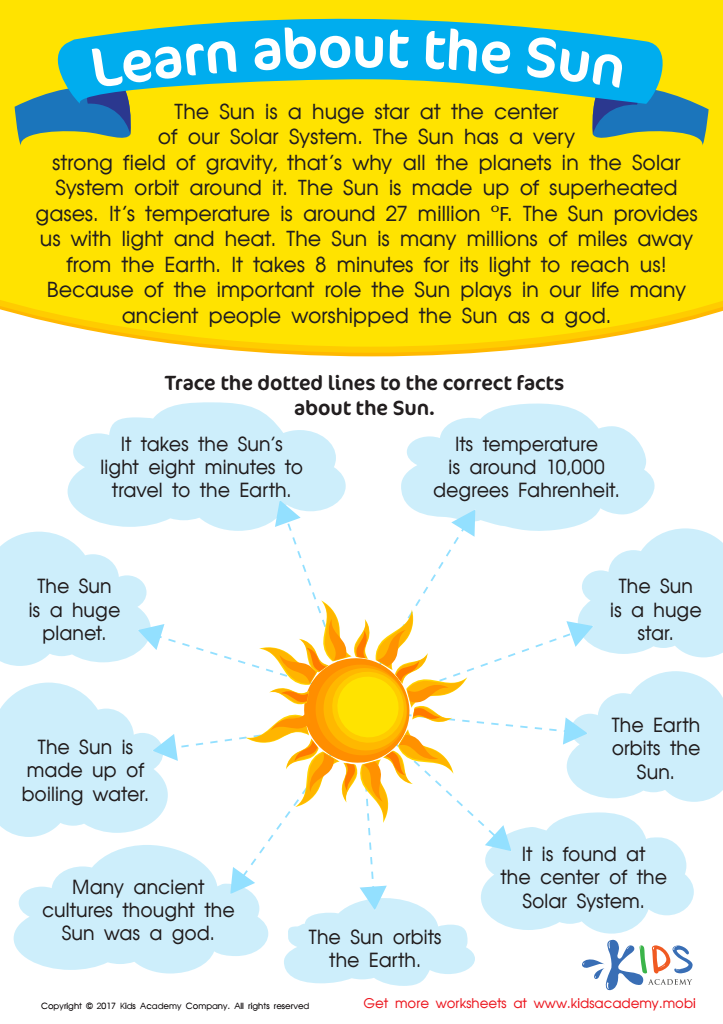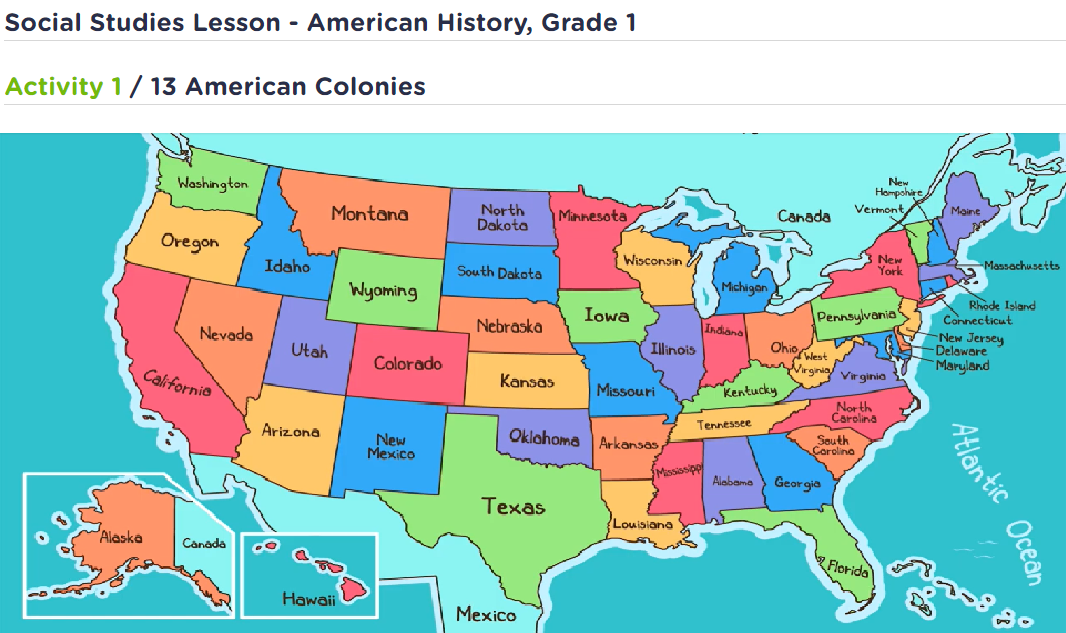Science literacy Worksheets for Kids
1 filtered results
-
From - To


Sun Facts Worksheet
Question/Answer
What does the Science literacy skill mean when it comes to Grade 3 Space learning?
Science literacy skill in Grade 3 Space learning refers to a student's ability to understand and apply basic scientific concepts and vocabulary related to space, such as the solar system, planets, and stars. It involves recognizing the Earth's place in space, describing simple characteristics of celestial bodies, and grasping the observable patterns in the night sky.
How to test a Grade 3 student’s Science literacy skills?
To test a Grade 3 student's Science literacy skills, utilize a combination of written quizzes, practical demonstrations, and oral questions that cover basic science concepts such as states of matter, life cycles, simple machines, and habitats. Employ illustrations, real-life scenarios, and hands-on experiments to assess their understanding, critical thinking, and ability to apply concepts to everyday situations.
How does the mastery of the Science literacy skill affect a student's performance at an early age?
Mastery of Science literacy at an early age significantly enhances a student's academic performance. It boosts critical thinking, problem-solving skills, and curiosity about the natural world. Such students are better equipped to understand scientific concepts, analyze information, draw evidence-based conclusions, and apply their knowledge to new situations.
 Assign to the classroom
Assign to the classroom












